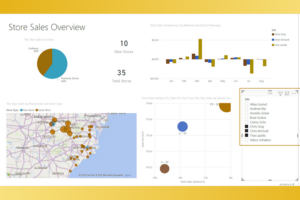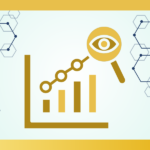
Reports that users will like: how to increase Power BI adoption in your organization?
Power BI adoption rarely fails because the tool itself “doesn’t work.” Most often, the problem lies elsewhere: reports do not fit into the daily work rhythm of users. They are too complex, the data is often inconsistent or outdated, and the report can take too long to load—as a result, people return to Excel. This is important because BARC research shows that on average only about 25% of employees actively use BI tools, and in large organizations even about 16%. The good news, however, is that adoption is “designable.” If we approach reporting as a product (with UX, audience segmentation, usage measurement, and iteration), Power BI becomes an everyday work tool rather than a monthly “PDF for a meeting.” How to make such a change? We’ll give you some tips!






